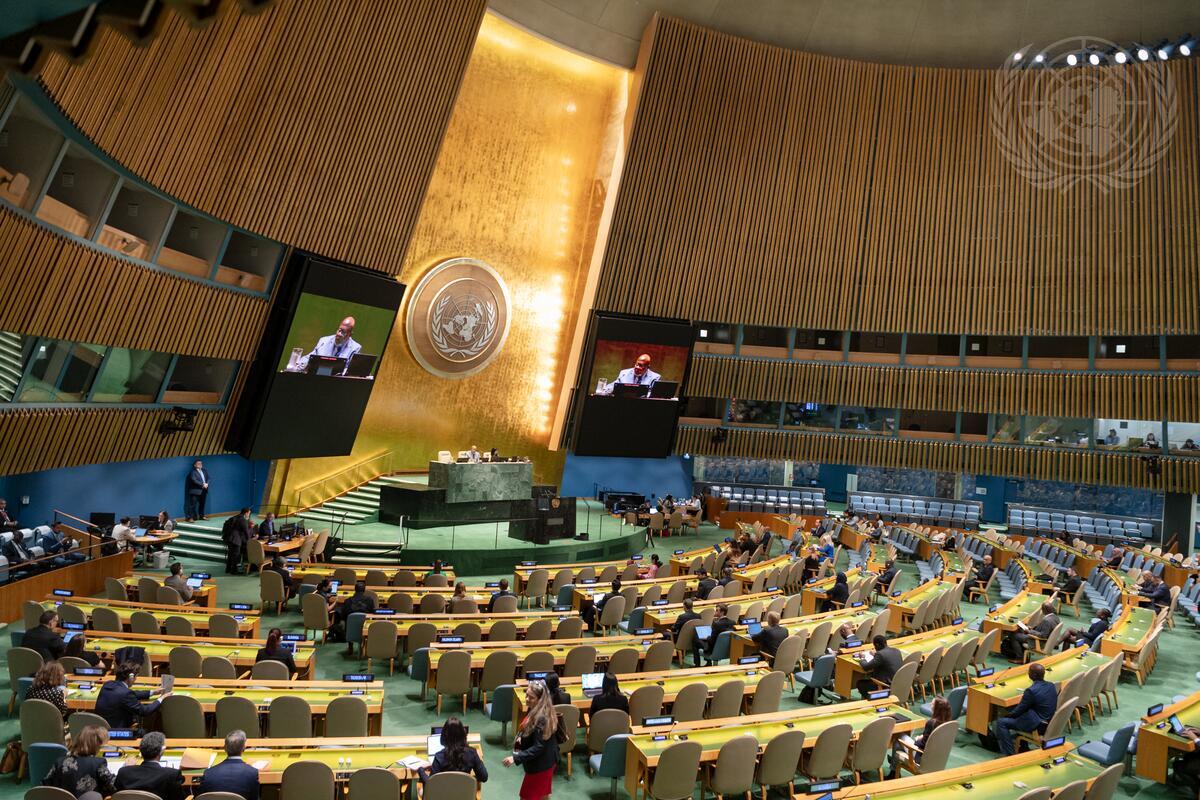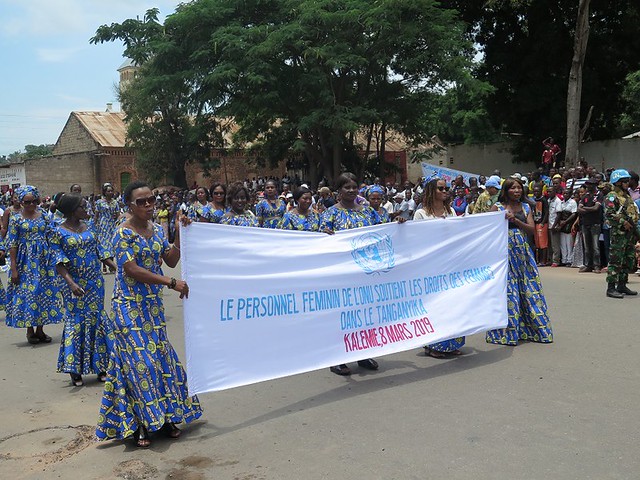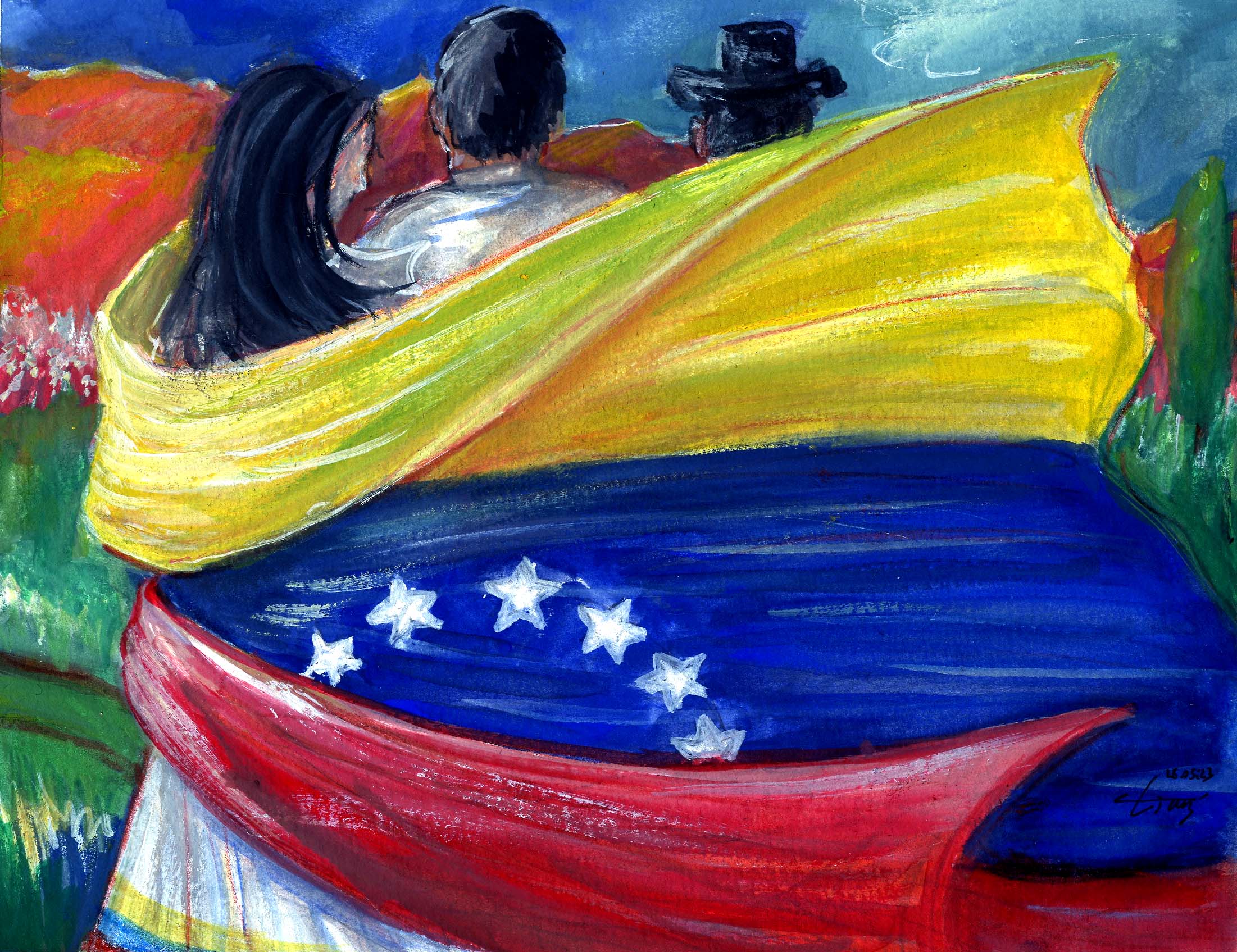During this session, civil society organisations gave an overview of the situation of women in the country. “Women human rights defenders are victims of prejudice by men and women in their communities and by public authorities. They are exposed daily to violence during field investigations and not protected by any law. When they are arrested because of their work as human rights defenders, they suffer from disparaging practices from security agents,” said the Groupe d’Action pour les Droits de la femme.
The Committee welcomed the progress achieved since the consideration in 2013 of the country’s last report which combined their sixth and seventh periodic reports (CEDAW/C/COD/6-7) in undertaking legislative reforms.
Marie-Ange Mushobekwa, Minister for Human Rights of the Democratic Republic of the Congo, recalled that in the State’s submission, in January 2018, the measures taken by the Government to give effect to the specific rights enshrined in the Convention on Human Rights were highlighted. Political, legislative, judicial and administrative plans, as well as actions taken to promote and protect the rights of women and girls such as law n° 15/013 of 1 August 2015 ‘on means of giving effect to women’s rights and gender parity’, law n° 16/008 of 15 July 2016 modifying and completing law n° 87 – 010 of 1 August 1987 creating the family code.
While acknowledging the efforts made by the State to improve its legislative framework the Committee is concerned that “the draft bill on the protection of human rights defenders has not been adopted yet. It is concerned that women human rights defenders suffer double discrimination, violence and prejudice both in their family and in society, and are exposed to expulsion from work and divorce. The Committee is further concerned that some provisions in the draft laws under review before the Parliament related to non-profit organisations, human rights defenders, counter-terrorism, public demonstrations, freedom of the press, and access to information might negatively impact women’s civil and political rights” as stated in their report.
Finally, the Committee addressed four key recommendations to the State:
- Expedite the adoption of the draft law on human rights defenders in conformity with the Convention;
- Guarantee that women human rights defenders and activists can freely carry out their activities protecting women’s human rights and exercise their rights to freedom of peaceful assembly and association;
- Prevent discrimination against women human rights defenders and ensure their protection from violence and intimidation; and investigate, prosecute and sanction all abuses against them;
- Amend or repeal any provisions contained in the draft laws concerning non-profit organisations, counter-terrorism, public demonstrations, freedom of the press, and access to information to ensure that they are in conformity with international human rights standards and instruments ratified by the State party.
ISHR encourages the authorities of the DRC to comply with these recommendations and adopt the bill on the protection of defenders in the DRC, ensuring it complies with the Declaration on human rights defenders and other international human rights standards. ISHR in partnership with local partner’s remains committed to support the process of adopting the law and taking steps to better protect women defenders.
Contacts: Adélaïde Etong Kame, Africa Advocacy Consultant, [email protected]
Vincent Ploton, Director of development and Treaty Body Advoccy, [email protected]
Photo : Flickr/MONUSCO




